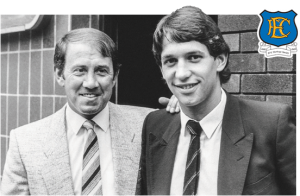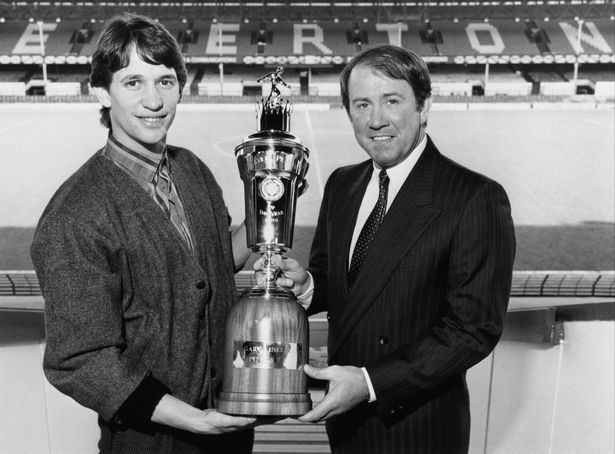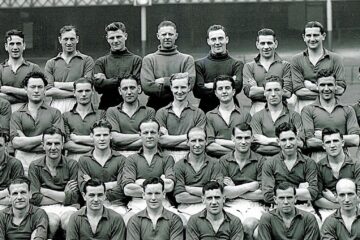
Any visit of Leicester City stirs up personal memories of those heady days when, as the Liverpool Echo’s chief football writer, I found myself recording the most successful phase in Everton FC’s history between 1983 and 1987.
In the middle of this glorious spell, the Blues signed Gary Lineker, a major blow for Leicester fans. Not only did they lose the top flight’s leading goalscorer in the summer of 1985, but also one of their own.
I was at Bellefield on Gary’s first day. As I left, my car was stopped at the gate by a crowd of young supporters, all shouting: “Gary, can we have your autograph?” I had to explain that I wasn’t Everton’s new star striker, a fact they refused to accept until I pointed to my ears and said: “Really?” The kids cheered and let me through.
Just 10 months later – after a whirlwind 30 goals in 41 league games for the Blues, six England World Cup strikes and a coveted Mexico ‘Golden Boot’ – Lineker was off to Barcelona for nearly £3m and immediately missed out on Everton’s second title in three years. Because of his swift departure he is not one of the Club’s most revered former stars, but his goal contribution was remarkable. It would be four years before I got the chance to ask Gary directly about his short Goodison career. I met him at England’s Italia ‘90 World Cup headquarters in Sardinia. At that time, the relations between our international players and the English media were at an all time low. However, Gary agreed to a special interview for Evertonians.
“We just missed out on the league and the FA Cup, but it went well for me personally,” he said. “I went to Mexico full of confidence, but I didn’t think for one minute that I would finish up as leading scorer.”
“Barcelona had shown an interest before the World Cup, but they would have cooled quickly if I’d had a bad tournament. In the end, I was offered the chance of a lifetime in a different country. It had to be done because it might never have cropped up again.”
It seems that top-class strikers, worth their weight in gold, will always be somebody else’s dream solution. In Lineker’s case, Kendall proved that today’s frustration can genuinely be tomorrow’s golden opportunity.
As for Gary, his media credentials were always evident. He would be the one surrounded by reporters, prepared to give his opinions and his time after games, while international colleagues banged on the team bus window – wanting a quick getaway. Gary’s progress as a football pundit was as certain as his eye for a golden goal. We wanted him a little longer, but another league title in 1987 was fairly reasonable compensation.
*Ken Rogers is the author of Everton book Born Not Manufactured.




